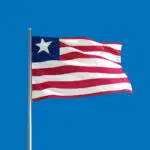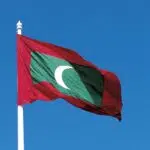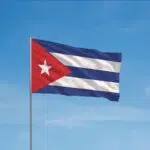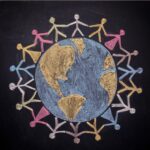Liberia Independence Day is commemorated on July 26 every year by the African Republic of Liberia. Formerly a United States colony, the country was founded in 1822 as a haven to house and settle freed African-American slaves. Liberia became the first African republic to declare independence after adopting its constitution in 1847. Liberia has had a turbulent history since then, which has hampered its progress as a nation. Consistent growth in the country’s political and economic structures, on the other hand, has sparked hope for the future.
History of Liberia Independence Day
The Republic of Liberia was initially founded as a settlement for Africans who were freed from American slavery. It was established by the American Colonization Society (A.C.S.) as a way to settle freed and formerly enslaved people of color.
One of the reasons why America approved of the settlement was because most African-Americans in the country faced racial discrimination in the form of political disenfranchisement and the denial of their basic civil rights. Powerful slaveholders, particularly those in the American South, initially opposed the move but viewed it as a way to prevent possible slave rebellions in the future.
To build a colony, the American Colonization Society began bringing freed slaves to what was then known as the Pepper Coast of West Africa in 1822. However, assimilation was first challenging. The colony’s liberated slaves were of mixed ethnicity and had been educated in American culture, making it difficult for them to blend in with the locals.
Between 1822 and 1861, thousands of freed slaves were relocated to the Pepper Coast and by 1824, the colony was named Liberia —— or ‘Land of the Free.’ With its economy growing over the next decades, the settlers eventually declared Liberia an independent nation on July 26, 1847. It was the first African nation to declare independence and is the continent’s oldest republic.
The United States, however, only recognized its independence in 1861, following the secession of Southern U.S. states into the Confederacy during the American Civil War— partly due to American backing, Liberia was spared from European colonization in the 1880s, becoming one of few African countries to do so. However, the country’s post-independence history was not without its troubles since wars from neighboring countries, as well as numerous civil wars proliferating in the 20th century, have torn the country apart. However, the country is steadily recovering from its tumultuous history and is turning to the future with renewed hope, despite many socioeconomic and developmental challenges still to be addressed.
Liberia Independence Day timeline
The American Colonization Society (A.C.S.) sends freed African-American slaves to the Pepper Coast of West Africa.
Liberia declares its independence.
The United States — the force behind Liberia's creation —formally recognizes Liberia's independence during the American Civil War.
Liberia is pulled into a devastating civil war, which lasts eight years until 1997 and was overthrown by the government of Samuel Doe.
Liberia engages in its second civil war, led by a warlord and former President Charles Taylor, which lasts ten years until 2003.
Liberia Independence Day FAQs
What language is spoken in Liberia?
Liberia’s primary language is English. However, more than two dozen indigenous languages are spoken in the country as well, such as the Kpelle, Bassa, Grebo, Kru, Dan, Loma, Mano, and Malinke. These languages showcase the extent of Liberia’s ethnic diversity.
Who gave Liberia independence?
Independence was granted by the United States in 1847, and Liberia aided Britain in its efforts to end the illegal West African slave trade. Official U.S. diplomatic recognition came in 1862. With the backing of the United States, Liberia kept its independence through the turmoil of the 20th century.
Is Liberia rich or poor?
Despite having an abundance of natural resources such as diamonds, iron ore, gold, and fisheries, Liberia remains one of the poorest countries in Africa. As of 2017, more than 1.6 million live below the food poverty line and its economy is only slowly recovering after decades of civil war. However, the World Bank projects that Liberia’s economy is expected to grow by 4.9% between 2022 and 2023, driven mainly by its untapped mining resources.
How to Observe Liberia Independence Day
Fly the flag
To commemorate Liberia's independence, fly the Liberian flag aloft. This is the day that Liberians all over the world are encouraged to be proud of their country and to appreciate their country's struggle for independence.
Celebrate with your fellow brethren, anywhere you are
Wherever you are, celebrate Liberian independence with your fellow Liberians. The Liberian diaspora, notably in the United States, holds events regularly and gathers on July 26 to honor their homeland. It is a day of festivity and celebration, marked by displays of patriotism, culture, and the best of Liberian food.
Read up on Liberian history
If you want to know more about Liberia and its history and culture, read the numerous articles, historical documents, and books to widen your knowledge. Reading is an important step toward understanding how Liberia became what it is today, why it faces its troubles, and why it plays a prominent role in Africa's makeup.
5 Interesting Facts About Liberia
A leader who’s adept with a ball
The current President of Liberia, George Weah, is an internationally renowned soccer star, who won the Ballon d'Or in 1995.
Liberian ships rule the waves
Due to its relatively lax maritime laws, Liberia hosts the second-largest commercial ship fleet in the world, with 12% of ships at sea flying the Liberian flag.
The first African country in the U.N.S.C.
Liberia became the first African country to be elected into the United Nations Security Council.
A shortage of doctors threatens its stability
The country has a massive shortage of medical personnel, with only one doctor per 15,000 people overall.
A historically sensitive clause
The Liberian constitution only permits those with dark skin to become official citizens, due to their history of being founded as a slave republic.
Why Liberia Independence Day is Important
Liberia is a testament to the power and will of freed slaves
Liberia was founded as a colony to house African-Americans who had been emancipated from slavery. According to the country's name, which means "Land of the Free," it is a country created on the pillars of freedom, which the slaves were denied when enslaved in America. It emphasizes the idea that all peoples deserve their own piece of land on which to exercise their freedom.
It offers Liberians a chance to reflect on their national identity
Liberian Independence Day serves as a moment that compels Liberians to reflect on how their country came to be. It is a period of self-reflection that compels one to think about what it means to be a Liberian and what can they do to help the country and its culture move forward. In other words, it helps instill a sense of pride in their roots and celebrates the national identity.
It gives Liberians time off to celebrate themselves
In Liberia, Independence Day is a public holiday that gives most of its people a day off. The time is used primarily to spend time with loved ones and enjoy. In the context of Independence Day, it is also time to exercise your Liberian pride in any way you desire. If that isn't freedom, then we don't know what is.
Liberia Independence Day dates
| Year | Date | Day |
|---|---|---|
| 2025 | July 26 | Saturday |
| 2026 | July 26 | Sunday |
| 2027 | July 26 | Monday |
| 2028 | July 26 | Wednesday |
| 2029 | July 26 | Thursday |




















